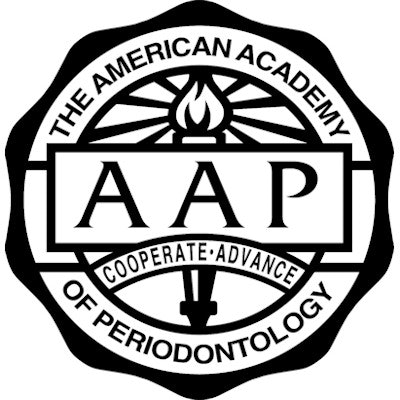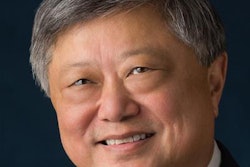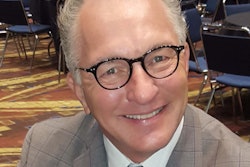
A third of people eat after they've finished their nighttime teeth-cleaning routine, according to the findings of a new survey from the American Academy of Periodontology (AAP).
This and other results from the survey help the academy learn how people are actually caring for their mouths and help inform members about patient care needs, according to AAP President Steven Daniel, DDS.
 Steven Daniel, DDS, is the president of the American Academy of Periodontology. Image courtesy of the AAP.
Steven Daniel, DDS, is the president of the American Academy of Periodontology. Image courtesy of the AAP."The campaign allows us to take a light-hearted angle to educate consumers not only to make flossing a habit, but about the optimal ways in which to do so. In this case, it's after the kitchen is closed for the night," Dr. Daniel wrote in an exclusive email interview with DrBicuspid.com.
The AAP commissioned a research firm to conduct an online survey of more than 1,000 residents in the U.S.
For the one-third of respondents who eat after flossing at night, it might be a lack of awareness, not a lack of good intentions, Dr. Daniel noted.
"Folks have good intentions, and it's better than not flossing at all," he wrote. "However, there's a lack of awareness of just what can happen when food debris is left between the teeth for extended periods, particularly as we sleep."
In keeping with Dr. Daniel's lighthearted comment, the survey also included questions such as "Where is the most unusual place you've ever flossed?" (almost 40% said in their car) and if people floss on vacation (30% admitted they don't). But other questions focused on oral and personal care routines:
- Only 23% of respondents said that flossing was the most important aspect of their care routine, compared with more than 80% who chose brushing their teeth.
- Only 7% cited flossing as being the most important aspect of taking care of their smile, compared with 55% who chose brushing their teeth.
“Perhaps by educating people now, we'll see a reduction in periodontal disease cases by the time this group is in their 50s and 60s.”
Another question found that baby boomers were the generation most likely to understand the role of a periodontist in their personal care routine. Also more than 30% of these respondents said that flossing was the most important part of their personal care routine, compared with 20% of millennials.
Age is a factor in the development of periodontal disease, but personal habits, such as smoking and irregular flossing or brushing, are a key driver, according to Dr. Daniel.
"While the campaign is designed to educate all Americans, we found it necessary to target younger adults, including millennials to instill the value of good lifelong gum health habits," he wrote. "Perhaps by educating people now, we'll see a reduction in periodontal disease cases by the time this group is in their 50s and 60s."
Dr. Daniel hoped the survey would be a step toward patients recognizing that periodontists have a role on their personal healthcare team.
"In the same way that people count on their personal trainers or nutritionists to improve their wellness, a periodontist is a valuable addition to everyone's care team," he noted. "Building good periodontal habits now -- brushing twice a day, flossing daily, and undergoing an annual comprehensive periodontal evaluation -- can reap dividends for their gum health later."



















